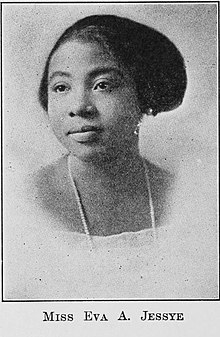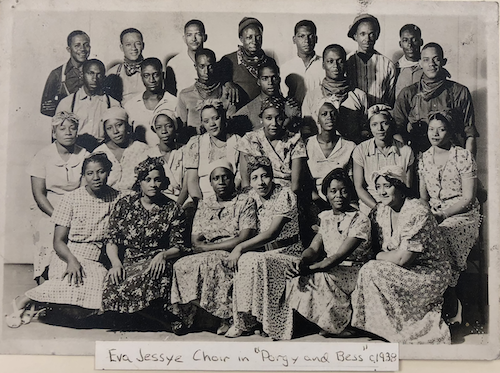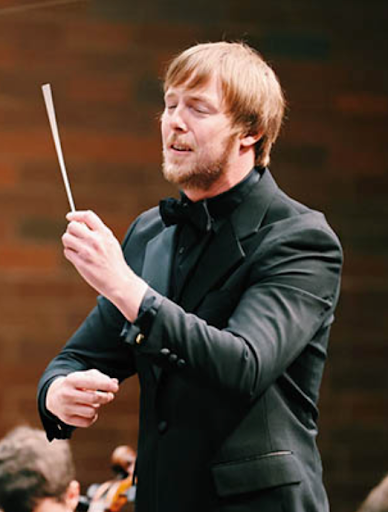by Max Newman
The Canton Symphony performs “Celtic Celebrations” (Amy Beach’s “Gaelic Symphony” & Felix Mendelssohn’s “Scottish Symphony”) under Matthew Jenkins Jaroszewicz (pictured, Saturday at 7:30), & the Youngstown Symphony features conductor Lawrence Loh and violin soloist William Hagen in the Beethoven Concerto (Sunday at 2:30).
Other performances include the Cleveland Cello Society Scholarship Winners Recital (Judson Manor on Saturday at 4), the rescheduled four-hand piano recital by Emanuela Friscioni & Julia Russ (St. Francis of Assisi in Gates Mills, Saturday at 6), two Apollo’s Fire Baroque Bistro series events — “The Wandering Minstrels” with Anna O’Connell and Friends (at Akron’s BLU Jazz+ Saturday at 8 and Cleveland’s Music Box Supper Club Sunday at 12:30), & a Cleveland Composers Guild Chamber Music Concert featuring works by Collegiate Competition Winners, including Gracelynn Jack’s Less Than Ten Days (Sunday at 3, Fairmount Presbyterian).
For details, visit our Concert Listings.
IN THE NEWS:
“Conde Nast Is Folding Pitchfork Music Magazine Into GQ And Laying Off Staff. The move will result in an undetermined number of layoffs at the website.” Read the article here.
Tuesday Musical‘s executive director Cyndee Snyder reminds us that applications for the 2024 Annual Scholarship Competition are open through February 1, 2024. “Some categories fill up fast, so don’t wait.” Apply here.
WEEKEND ALMANAC:
By Jarrett Hoffman

Founder of the Eva Jessye Choir (at first named the Original Dixie Jubilee Singers), she and the group frequented the silver screen, the stage, the radio, and the record booth as their renown grew and grew. Two of their most famous performances came in New York. She directed her choir in the 1935 premiere of George Gershwin’s Porgy and Bess (and then in every incarnation of the show for 30 years), and in the 1934 Broadway production of Four Saints in Three Acts, an opera by Virgil Thomson and Gertrude Stein.
The latter was of industry-wide importance, not only musically — a departure in style from what the public expected of Black musicians — but also economically. The choir was paid for rehearsals after Jessye demanded it, pushing back against a tradition of discriminatory salaries and, more simply, the nonpayment of choruses for rehearsal.
Continuing her commitment to civil rights, Jessye was part of a Porgy and Bess cast strike in Washington, D.C., forcing the management of the National Theatre to temporarily desegregate its seating. In that same city, decades later, the Eva Jessye Choir was named the official choral ensemble for the 1963 March on Washington, giving performances including We Shall Overcome.
Listen to the Eva Jessye Choir in a 1940 Decca recording of “Clara, Clara” from Porgy and Bess here— they enter at 1:10.

In the classroom, she taught at Pittsburg State University (Pittsburg, Kansas) and the University of Michigan, though writing in letters, she expressed frustration at being under-appreciated in Ann Arbor, and at being remembered only for her work on Porgy and Bess rather than her other work, including her mentorship of young artists.
Her own compositions include The Life of Christ in Negro Spirituals, The Chronicle of Job, and the oratorio Paradise Lost and Regained, which drew on both spirituals and Milton’s Paradise Lost. I haven’t succeeded yet in tracking down a recording — here is where I glance hopefully at our enthusiastic readers.
We’ll end with a quote from Jessye:
“If anything is going to bring this world together, it’s going to be music. It’s going to be music, and it’s going to be the arts. Nothing else will accomplish this. Because nothing except the arts will reach the people. It must be communication spirit to spirit.”
By Daniel Hathaway
On January 21 in 1575, Queen Elizabeth I granted English composers Thomas Tallis and William Byrd letters patent that gave them a monopoly over publishing music and music paper. The first collection, set that year by the Huguenot printer T. Vautrollier, was Cantiones sacrae, containing 17 motets each by the two composers. Listen to Tallis’ O nata lux de lumine sung by Almire here.
And on this day in 1626, English lutenist and composer John Dowland died in London and was buried on February 20 in St. Anne’s Church, Blackfriars. Much of his music is doleful, either due to his personal tendency toward melancholy (which led to a pun on his name) or reflecting one of the prevailing fashions of his time. An appropriate song to mark the occasion would be In darkness let me dwell, one of three of his songs published by his son in 1610. Listen to it here performed by soprano Estelí Gomez and guitarist Colin Davin.
Two events on this date that altered the course of American music history include the first national radio broadcast from a U.S. Opera House in 1927 (Gounod’s Faust from Chicago), and the American debut of conductor Erich Leinsdorf in New York in 1938. The first paved the way for weekly Metropolitan Opera Broadcasts. The second could have kept Leinsdorf on the podium at Severance Hall had not service in the Army pulled him into uniform. Enter George Szell.
Finally, Danish pianist and comedian Victor Borge’s “Comedy in Music” closed on this date in 1956 at the John Golden Theater in New York after 849 performances, earning him a place in the Guinness Book of Records for the longest-running one-man show in the history of theater. We could all use some of Borge’s sophisticated silliness these days. Watch the zaniness on YouTube.




